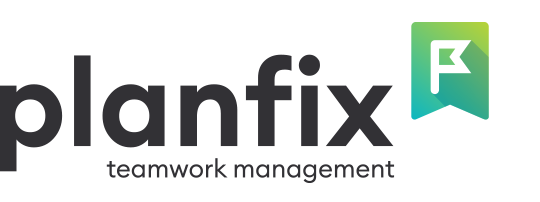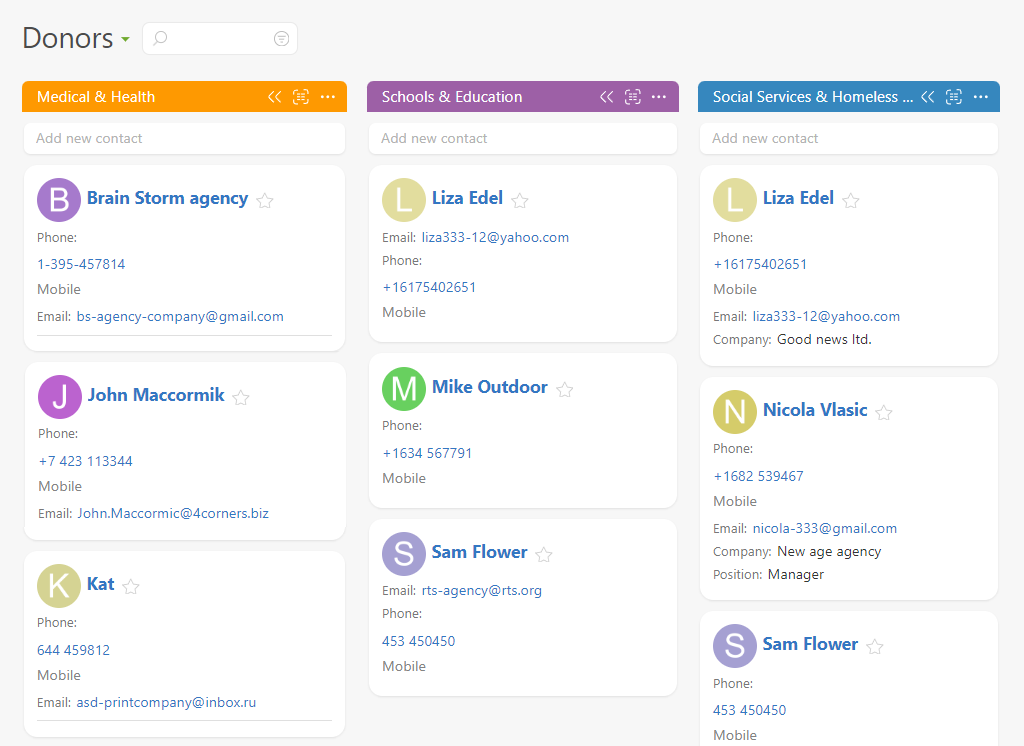
- Who Can Benefit From Project Management Software?
- Advantages of Project Management Software
- 1. Improved Planning and Scheduling
- 2. Enhanced Resource Management
- 3. Advanced Team Collaboration
- 4. Organized Project Data
- 5. Simplified Reporting and Analytics
- 6. Real-Time Management
- 7. Effective Security
- 8. Improved Budget Management
- 9. Flexibility
- 10. Effective Communication
- 11. Risk Management
- 12. Higher Standardization of Processes
- The Main Features of Project Management Tools
- Project Management FAQ
- Conclusion
Effective project management is essential for profitable operations and efficient business scaling. It ensures that teams complete projects on time, stay within budget, and meet high business standards. Project management software is critical to streamlining processes by providing tools to efficiently plan, execute, and monitor projects. Understanding the different types of collaboration tools and the benefits of project management software will help you choose the best tool for your specific needs.
Who Can Benefit From Project Management Software?
Project management software is not limited to large organizations but offers significant benefits across various businesses and industries. Whether running a small startup or managing a large enterprise, these tools can streamline your processes, increase productivity, and ensure projects are completed on time and within budget. Below, you will learn about the benefits of using project management software and how different types of businesses can benefit from it, along with examples and specific use cases.
- Small Enterprises: Small businesses often work with limited resources and tight budgets. Project management software helps manage projects more efficiently by providing tools to plan, track, and collaborate on tasks. For example, a small marketing agency uses the Planfix project management system to organize customer campaigns, assign tasks to team members, and track progress and deadlines. By centralizing project information and communication, small businesses can reduce the time spent on administrative tasks and focus more on delivering quality work to their customers. In addition, budgeting features help small businesses keep a close eye on project spending and avoid cost overruns.
- Medium-Sized Businesses: As companies grow, their projects become more complex and require more advanced tools. Medium-sized companies can benefit from project management software that can grow with them and handle more complicated projects. A mid-sized software development company uses the Planfix platform to manage multiple development projects simultaneously. Planfix’s features, such as Gantt charts, various boards and planners, and time tracking, help the company keep projects on time and within budget. Using these tools, the company can improve team coordination, manage dependencies between tasks, and ensure everyone knows the project status, leading to better project results and higher customer satisfaction.
- Large Enterprises: Large organizations with multiple departments and large teams need comprehensive project management tools to manage various projects simultaneously. These organizations benefit from software that offers advanced features such as portfolio management, risk assessment, and detailed reporting. For example, a multinational corporation involved in multiple product development projects can use project management software to coordinate the work of different teams and locations. With Planfix’s all-in-one solution, project managers can track the progress of individual projects, manage resources efficiently, and generate reports for senior management. Large companies can ensure consistent project delivery and improve the entire organization’s efficiency by providing a unified platform for project management.
- Tech Startups: Tech startups work in a fast-paced environment that requires flexibility and rapid iteration. Adaptable project management software is ideal for these companies as it supports methods such as Scrum and Kanban, which emphasize iterative development and continuous feedback. For example, a tech startup developing a new app can use agile project management software to manage its development sprints. The software allows the team to plan sprints, track progress, and adjust tasks based on feedback. This iterative approach helps the startup to adapt to changes quickly, improve product quality, and accelerate time to market. In addition, the collaboration features allow team members to communicate effectively, share updates, and promptly resolve issues.
- Non-profit Organizations: Non-profit organizations can benefit significantly from project management software, as they often need to manage multiple fundraising projects with limited resources and tight budgets. Planfix’s tools help non-profit organizations plan and execute their fundraising and volunteer initiatives more efficiently. One nonprofit focused on donor community development uses Planfix’s project management software to coordinate various programs, manage volunteers, and track donations.

The benefits of project management software, such as task assignment, progress tracking, and budget management, ensure that projects are completed on time and within budget. In addition, collaboration tools allow nonprofit staff and volunteers to communicate effectively, share information, and work towards common goals. Nonprofit organizations can increase their operational efficiency and maximize their impact on their communities using project management software.
- Marketing and Creative Agencies: Creative and marketing agencies such as advertising firms and design studios rely on collaboration and effective communication. Project management software with robust collaboration features helps these agencies manage projects, share files, and communicate seamlessly. Marketing agencies working on multichannel marketing campaigns use Planfix to organize tasks, share creative assets, and coordinate the work of different teams. The software allows team members to collaborate, provide feedback, and update project files in real-time. This streamlined communication ensures everyone is aligned on project goals and deadlines, leading to more successful campaigns and happier customers.
To summarize, project management software is a versatile tool that can benefit various businesses and industries. By providing features to improve planning, tracking, collaboration, and resource management, these tools help organizations of all sizes achieve their project goals more efficiently. Whether you are a small business owner, a project manager in a medium-sized company, or a team leader in a large enterprise, project management software can help you streamline your processes, increase productivity, and deliver successful projects.
Advantages of Project Management Software
Project management solutions offer numerous advantages that significantly improve the planning, execution, and monitoring of projects by teams. Here are some of the key advantages of project management software:
1. Improved Planning and Scheduling
Project management software enables teams to plan and schedule tasks efficiently. Tools like Gantt charts and calendars help visualize project timelines and ensure team members know their responsibilities and deadlines. Various project management platforms offer advanced planning features to help manage dependencies and allocate resources effectively.

2. Enhanced Resource Management
Effective resource management is crucial for project success. Project management tools enable managers to allocate resources appropriately, track their utilization, and avoid overloading team members. Tools such as Planfix provide detailed insights into resource availability and utilization, helping to optimize productivity.
3. Advanced Team Collaboration
Collaboration is key to the success of any project. Project management software facilitates communication between team members, allowing them to share updates, files, and feedback seamlessly. Platforms like Planfix offer collaborative features that help teams stay connected and work together efficiently – even remotely.
4. Organized Project Data
Organizing project data is critical to tracking progress and making informed decisions. Project management tools store all project-related information in one place to be easily accessed and updated. This centralized approach ensures that everyone involved has the latest information, reducing the risk of errors and misunderstandings.
5. Simplified Reporting and Analytics
Reports and analysis are essential for evaluating project performance and identifying areas for improvement. Project management software offers comprehensive reporting tools that generate insights into project status, resource utilization, and overall performance. Thus, customizable reports help managers track progress and make data-driven decisions.
6. Real-Time Management
Real-time project management capabilities allow managers to monitor progress and address issues as they arise. Project management solutions provide real-time updates and notifications so managers can stay on top of tasks and make timely adjustments to keep projects on track.
7. Effective Security
Protecting sensitive project data is a top priority for any organization. Project management software offers robust security features, including data encryption, access controls, and regular backup automation. These measures ensure that project data is secure and only accessible to authorized personnel.
8. Improved Budget Management
The effective management of project budgets is crucial for avoiding cost overruns. Project management tools help track expenses, compare them to budgets, and forecast future costs. Software like Planfix offers budgeting features that allow managers to monitor financial performance and make necessary adjustments to stay on budget.

9. Flexibility
Modern project management software is highly flexible and enables teams to adapt to changing requirements and environments. Tools developed for adaptable project management allow teams to react quickly to changes and iterate their work efficiently.
10. Effective Communication
Clear and consistent communication is essential for project success. Project management tools offer various communication channels, such as chat, email, and forums, to keep everyone up to date. These platforms have integrated communication features that help teams stay connected and collaborate effectively.
11. Risk Management
Recognizing and mitigating risks is essential for successful project management. Project management software helps teams identify potential business and financial risks, assess their impact, and develop competent strategies. Tools with risk management capabilities enable teams to proactively address issues and minimize their impact on project outcomes.
12. Higher Standardization of Processes
Standardizing processes ensures consistency and efficiency across all company projects. Project management software helps establish best practices and workflows that teams can follow to achieve better results. With Planfix, for example, companies can create templates and standardized processes that streamline project execution and improve teamwork efficiency.
The Main Features of Project Management Tools
Project management software offers many features to improve efficiency and team collaboration. These tools are essential for optimizing project workflows, managing resources effectively, and ensuring the timely completion of tasks. Let’s examine key features that make project management software indispensable to any organization.
Project Planning
Effective project planning is crucial to the success of any project. Tools such as Gantt charts and calendars are fundamental in project management software as they visually represent the project timeline. These tools help teams outline tasks, set deadlines, and allocate resources appropriately. By visualizing the entire project from start to finish, teams can better anticipate potential bottlenecks and plan accordingly. Gantt charts can show the dependencies between tasks and clarify which tasks must be completed before others can begin. This level of planning ensures that everyone knows their responsibilities and deadlines, allowing for smoother project execution.
Tracking Completion, Time, and Cost
Monitoring a project’s progress, time, and cost is essential to stay on track and within budget. Project management software offers robust tracking features that allow managers to monitor every aspect of the project. By tracking task completion, teams can identify delays and take prompt corrective action. Time-tracking features help monitor hours spent on each task and ensure team members work efficiently. Additionally, cost tracking features allow managers to compare actual spending with the budget to avoid cost overruns. For example, if a project goes over budget, the software can alert managers so they can reallocate resources or adjust the project scope to stay within financial limits.
Time Management and Scheduling
Time management is an essential aspect of project management. Project management software includes time-tracking features that help teams stay organized and meet deadlines. These tools allow team members to log their working hours, giving managers a clear overview of time spent on different tasks. By analyzing this data, managers can identify areas where employees waste time and implement strategies to improve efficiency. Planning tools also allow teams to create detailed schedules, set milestones, and assign due dates to tasks. This level of organization helps ensure that teams complete projects smoothly and on time. A project manager can use these planning features to align all tasks with the overall project timeline, reducing the risk of delays.
Resource Management and Allocation
Resource management is another critical function of project management software. These tools enable managers to allocate resources appropriately, ensuring that team members are not overloaded and that all tasks have the necessary resources to be completed. Resource management features provide insights into resource availability and utilization, helping managers optimize productivity. For instance, if a team member has too many tasks, the software can highlight this issue, allowing the manager to redistribute the workload more evenly. Additionally, resource management tools can help forecast future resource needs, ensuring that projects are adequately staffed and equipped from start to finish.
Cost Estimation and Budgeting
Budget management is a crucial component of successful project management. Project management software includes budgeting features that help track and compare expenses to the allocated budget. With these tools, managers can accurately estimate project costs, such as labor and material costs. By monitoring expenses in real time, managers can identify any deviations from the budget early and take corrective action. For example, if material costs exceed the budget, the software can alert the manager, who can negotiate with suppliers or find alternative solutions. Financial monitoring ensures that projects are completed within budget, contributing to the project’s overall success.
Collaboration and Communication
Effective communication and collaboration are critical to the success of any project. Project management software includes built-in communication tools that enable better teamwork and information sharing. These tools allow team members to communicate in real time, share updates, and collaborate seamlessly on tasks. Features like integrated chat, messenger, and video conferencing enable team members to discuss project details, share feedback, and resolve issues quickly. Collaboration tools also support file sharing so that team members can easily access and update project documents. By centralizing communication and collaboration, project management software ensures everyone is on the same page, reducing the risk of misunderstandings and increasing the project’s overall efficiency.
Files & Documentation
Organizing project files and documents is critical to maintaining a clear and accurate record. Project management software provides centralized storage for all project files and documents and allows easy access and updates. These tools allow team members to upload, share, and collaborate on documents in real-time. For example, a project manager can store all project-related documents, such as contracts, reports, and draft files, in a single location. This centralized approach ensures that team members can quickly find the information they need, reducing the time spent searching for documents and increasing overall productivity. In addition, version control features help track document changes to ensure everyone is working with the most up-to-date information.

Clear and User-friendly Interface
One of the most essential features of project management software is its user-friendliness. User-friendly interfaces make it easy for teams to adopt and use the software effectively. Intuitive design, straightforward navigation, and helpful tutorials ensure team members can quickly learn how to use the software and take full advantage of its features. For example, drag-and-drop features, customizable dashboards, and pre-built templates simplify the setup and management of projects. By providing a seamless user experience, project management software helps teams focus on tasks and collaborate more efficiently, leading to better project outcomes.
Project management software offers comprehensive features that improve planning, tracking, resource management, communication, and collaboration. Organizations can use these tools to improve project efficiency, stay on budget, and achieve their goals more effectively. Whether you manage a small team or a large organization, project management software can help streamline your workflows and ensure project success.
Project Management FAQ
What Is Project Management Software Suitable for?
Project management software is well-suited for more efficient project planning, implementation, and monitoring.
It helps teams organize tasks, manage resources, track progress, and collaborate effectively, ensuring that teams complete projects on time, on budget, and to the desired quality.
How Can Project Management Software Benefit your Business?
Project management software benefits organizations by improving planning and scheduling, optimizing resource management, facilitating collaboration, organizing project data, simplifying reporting
and analytics, enabling real-time management, providing adequate security, improving budget management, providing flexibility, improving communication, managing risk, and standardizing processes.
Can Project Management Tools Be Used for Small Businesses?
Yes, small companies can use project management tools. They help small teams manage projects more efficiently, ensure that limited resources are used effectively, and complete tasks on time and within budget.
Tools like Planfix are particularly suitable for small businesses due to their simplicity and affordability.
Conclusion
Choosing the right project management software is crucial to the success of your projects. Understanding the different types of tools and the advantages of using project management software will help you choose a solution that increases productivity, collaboration, and efficiency. Whether you need customized, collaborative, or integrated project management software, there is an option perfectly tailored to your needs. Take the time to review your options and choose the best project management tool to fit your workflow and project goals.
Get started today with a fully functional 14-day trial! Our support team is available to answer any questions about the system and how to configure it best.


